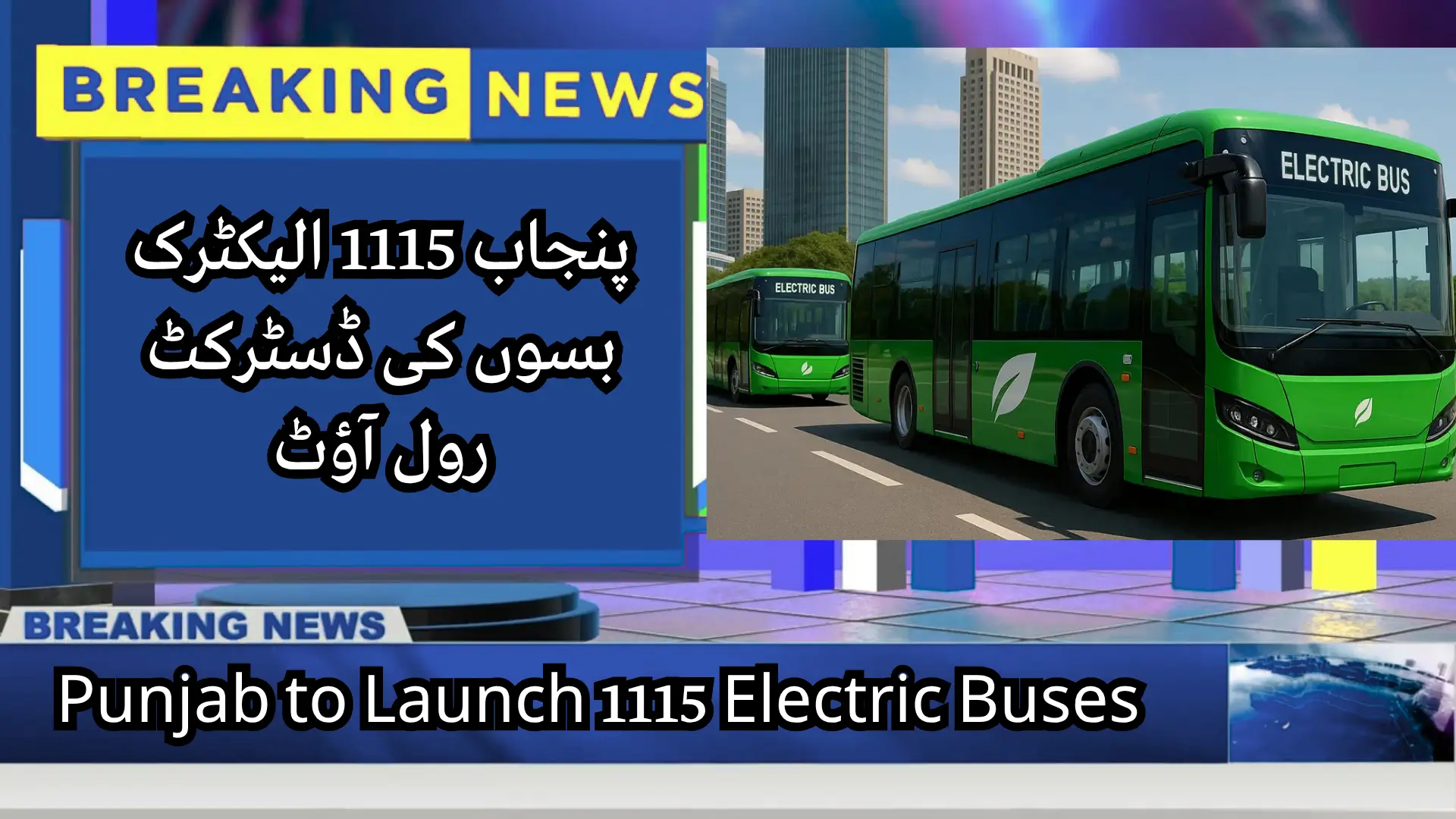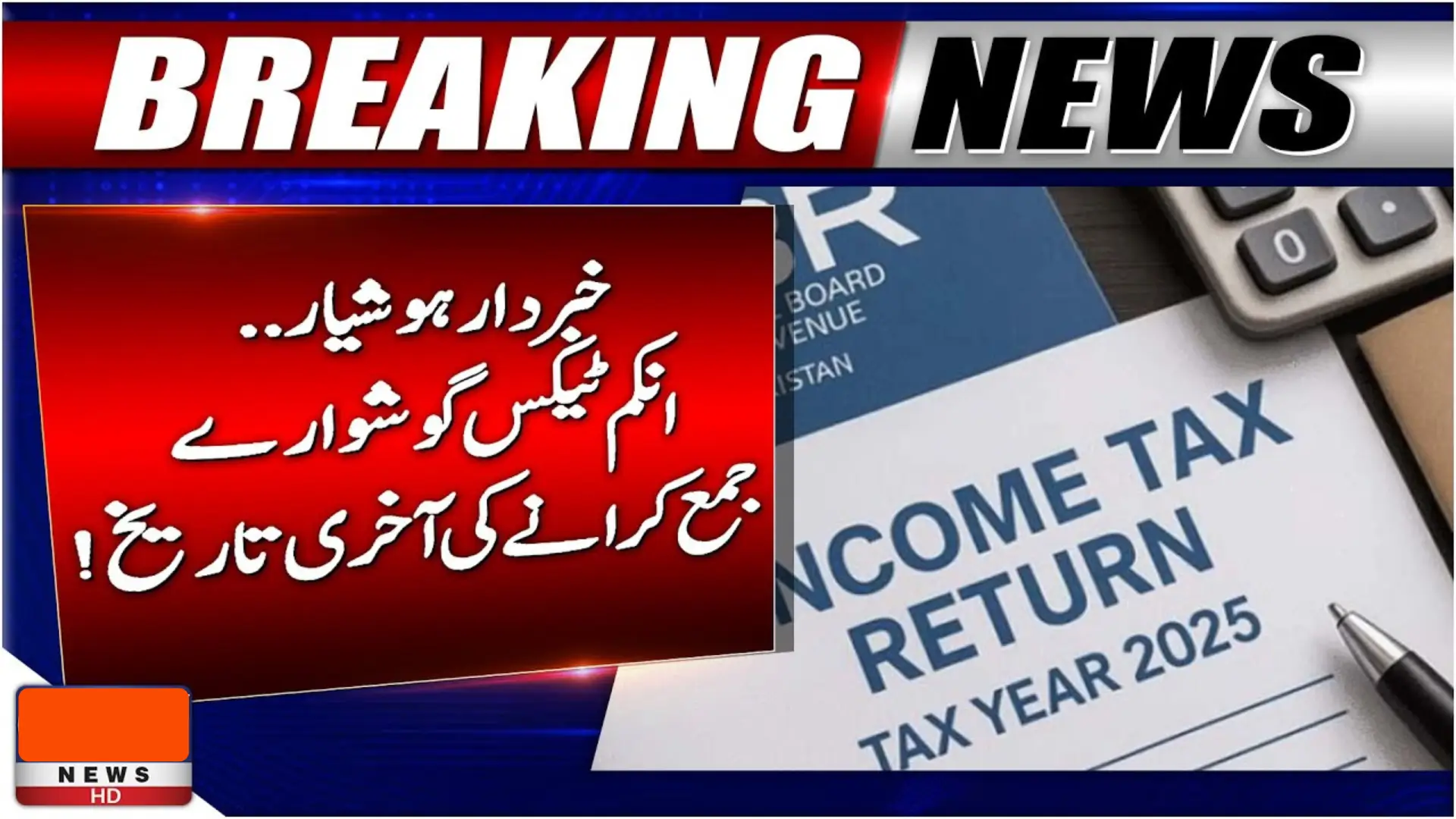Punjab to Launch 1115 Electric Buses District Rollout, Charging Stations & Key Details. Punjab is moving toward a clean and modern transport future. Chief Minister Maryam Nawaz has announced that 1,115 electric buses will start operating across the province by December 2025. This project is part of the government’s plan to promote eco-friendly, affordable, and efficient public transport.
The initiative will not only reduce pollution but also improve the daily commute for millions of citizens. A district-wise rollout plan and charging infrastructure are already in progress to ensure smooth operations.
1115 Electric Buses for a Green Punjab
This project marks a new era for Punjab’s public transport system. The main goal is to reduce the use of fuel-based vehicles and move toward a cleaner and greener transportation network. These buses will run on electricity, which means lower emissions, reduced fuel costs, and a healthier environment.
Key highlights include:
- 1,115 electric buses to be operational by December 2025.
- Uniform bus stop designs across Punjab.
- District rollout plan approved and distributed.
- Charging stations being built in all major cities.
This project will transform how people travel in both urban and rural areas of the province.
CM Maryam Nawaz’s Directives
During a high-level meeting, Chief Minister Maryam Nawaz gave clear instructions to ensure the timely completion of the electric bus project. Her focus is on fast infrastructure setup and smart public transport solutions.
- Launch 1,115 electric buses across Punjab by December 2025.
- Deputy Commissioners to speed up charging station construction.
- Uniform design for bus stops across all districts.
- Early work on the Super Autonomous Rapid Transit (SRT) project.
- Focus on urban and semi-urban areas with higher passenger demand.
This strong leadership reflects Punjab’s growing commitment to sustainability and public convenience.
District-Wise Rollout Plan
The Punjab government has divided the bus rollout into phases to ensure a smooth transition. The first phase will start in larger cities with existing bus systems, while smaller districts will join later once the infrastructure is ready.
- Sargodha
- Faisalabad
- Mianwali
- Wazirabad
- Muzaffargarh
- Pakpattan
These cities will act as model districts before the project expands to other regions.
District-Wise Electric Bus Allocation Table
| District | Phase | Buses Allocated | Expected Start | Charging Station Status |
|---|---|---|---|---|
| Sargodha | 1 | 120 | Nov 2025 | Under installation |
| Faisalabad | 1 | 200 | Dec 2025 | 80% completed |
| Mianwali | 2 | 80 | Jan 2026 | Site identified |
| Wazirabad | 2 | 70 | Jan 2026 | Planning stage |
| Muzaffargarh | 3 | 60 | Feb 2026 | Feasibility approved |
| Pakpattan | 3 | 50 | Feb 2026 | Pending approval |
| Other Districts | TBD | 535 | TBD | To be confirmed |
This phased approach ensures that the infrastructure is ready before operations begin in each district.
Charging Stations and Infrastructure Readiness
To power the 1,115 electric buses, charging stations are being built in every operational district. These stations will include fast and standard charging points and will rely on solar-assisted power to reduce grid load.
- Grid upgrades to handle heavy power use.
- Fast charging technology for quick turnarounds.
- Training programs for local technicians.
- Smart monitoring systems for energy efficiency.
- Backup power systems to prevent downtime.
The Punjab Transport Department is working closely with the Energy Department to ensure that charging stations are operational before bus deployment.
Benefits for Commuters
The electric bus project will make daily travel cheaper, faster, and cleaner. It will improve public transport quality while supporting Punjab’s climate-friendly goals.
- Affordable fares compared to fuel-based buses.
- Zero-emission rides for a cleaner environment.
- Air-conditioned comfort with modern seating.
- Real-time digital route tracking and e-ticketing.
- Less travel time on key routes.
These features aim to make public transport a preferred choice again, reducing reliance on private cars and motorbikes.
Super Autonomous Rapid Transit (SRT) Project
The Super Autonomous Rapid Transit (SRT) is another major transport innovation under consideration. It will use electric, trackless vehicles for inter-city travel, reducing congestion and improving connectivity between major cities.
The CM has ordered early feasibility work on the SRT system. Once complete, this will complement the electric bus network and create an integrated smart transport system for Punjab.
Water and Urban Development Integration
Punjab’s government is also improving related infrastructure alongside transport upgrades.
Recent developments include:
| Initiative | Status | Coverage | Department |
|---|---|---|---|
| WASA Expansion | Active | 19 → 25 cities | Housing & Urban Dev. |
| Water Filtration Plants | Running | 5,000+ operational | Housing & Urban Dev. |
| Model Village Project | Ongoing | 472 Villages | Local Govt & Planning |
These projects support better living standards and clean urban environments across Punjab.
Conclusion
The launch of 1,115 electric buses in Punjab is a landmark project for cleaner, greener, and more efficient public transportation. With charging stations being built in every district and the SRT project under planning, the province is setting new standards for smart mobility.
By December 2025, Punjab’s citizens can look forward to comfortable, affordable, and eco-friendly travel. This initiative shows the government’s commitment to sustainable growth and public welfare, leading Pakistan toward a cleaner and modern future.















